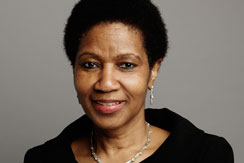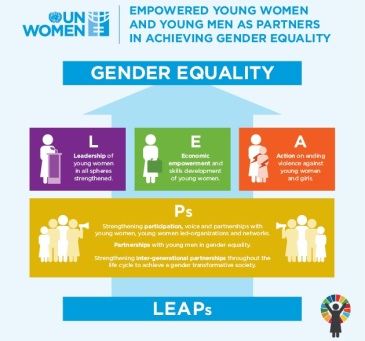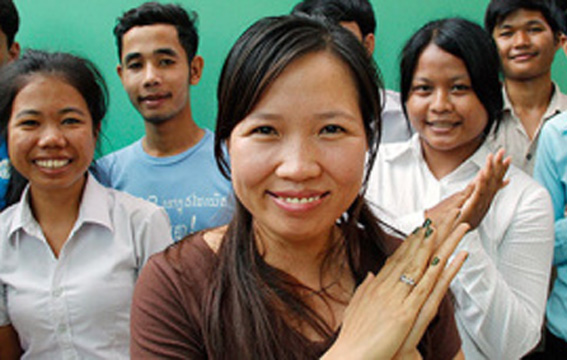By Phumzile Mlambo-Ngcuka, Executive Director UN Women*
12 August 2016 (UN Women) – Increasing prosperity, reducing exploitation, and encouraging new ideas and habits that support sustainability is the message behind the theme for this year’s International Youth Day: “The Road to 2030: Eradicating Poverty and Achieving Sustainable Consumption and Production.”
With more than half the world’s population currently under 30, and a projected rise to 75 per cent over the next decade, young people have tremendous potential in helping to create a sustainable, prosperous and fair future for all.
The Sustainable Development Goals (SDGs), which guide the road to 2030, are interlinked, so that the implementation of SDG 12, on responsible consumption and production, can help to achieve SDG 1, to reduce poverty.
Both of these SDGs go hand in hand with SDG 5, the empowerment of women and girls.
.
An integral part of the conversation around these issues is the barriers to women’s sustainable production practices and participation in the economy. A blog published on Empower Women reported that around 80 per cent of the labour that goes into producing coffee is done by rural women.
Many of them are paid just US$1.75 per day, when the fruits of their labours can sell for up to US$240 per kilo.
Globally, women make up the majority of those living on less than two dollars a day and, in some regions, account for 81 per cent of the unemployed. Where they do earn a wage, women are paid an average of 24 per cent less than men for the same work.

Phumzile Mlambo-Ngcuka, Executive Director UN Women
Supporting small and starter businesses to grow not only creates badly needed jobs—it also drives growth and advances shared prosperity.
Some 9.34 million small and medium-sized enterprises (SMEs) around the world are run by women. Yet, in many countries, women still face challenges that impede their ability to operate and grow their businesses.
These barriers include exclusion from male-dominated markets, concentration in less-productive and lower-paying sectors and lack of access to business management skills training.

UN Women
We have the means to change these inequalities through the decisions that we make. As young activist Thabo Mubukwanu told us:
“By purchasing from socially conscious companies that support women, I have the power to determine whether my money goes into making my community and the world at large a better place. Rather than spend $1 at a company that produces goods in sweatshops, I can spend it at a company that empowers women by including them at every level of their supply chain. I will know that with every purchase a woman somewhere can have a dignified life.”
As individuals, we can all aim to be conscious consumers and encourage decisions that positively influence women’s livelihoods.
As business owners, we can provide training and make explicit, fair purchasing and commissioning choices that support women producers, and as governments, we can remove legislative barriers that constrain women’s entrepreneurship and put in place provisions to ensure fair trade practices.
Strengthening initiatives to promote women’s economic empowerment, including investing in innovation and skills development for young women and the gender responsive implementation of Agenda 2030, is a key component of UN Women’s youth strategy.
In addition, we must educate young people on sustainable use of land, water and natural resources.
This will empower them to make purchasing decisions that will encourage companies to re-evaluate their supply chains and integrate sustainability into corporate policies and culture.
2016 Human Wrongs Watch










